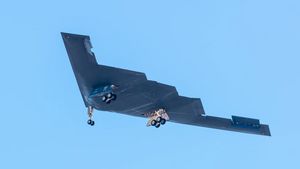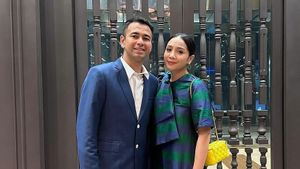JAKARTA - The ability of doctors in Indonesia to use high-tech medical devices is still lame when compared to their counterparts in a number of developed countries, said an administrator of the Indonesian Doctors Association (IDI). "We see here a gap between Indonesia and the ASEAN Economic Community countries. (MEA)," said Chairman of PB IDI for the 2015-2018 period Prof Ilham Oetama Marsis in the agenda of the General Hearing Meeting (RDPU) of the Legislative Council of the Republic of Indonesia regarding the Medical Education Bill which was followed from YouTube in Jakarta, Monday 13 June. , said Marsis, Indonesia is still lagging behind in the competence of doctors in the fields of robotic technology, nanotechnology, genetic engineering and others. When viewed from the ranking of universities in the world in 2022, the highest ranking in Asean is the National University of Singapore in 11th place, Malaysia University in 65th. , University of Indonesia (UI) ranked 254th and Gadjah Mada University (UGM) ranked 290th of i a total of 1,300 universities." Not including the ranking given by the MEA Forum which places the medical service system in Indonesia in a very backward place. The UI ranking at the MEA level is at number 1,618 and UGM 1,955," he said. He said that in a number of western countries there had been a change in the concept of medical education, especially during the COVID-19 pandemic, from traditional clerkships to virtual clerkships.
"Western countries have converted education by prioritizing high technology, but this requires telehealth and telemedicine. Indonesia has only been able to implement telemedicine surgery with two-way communication capabilities," he said. For example in Indonesia, said Marsis, the use of robotics for For the purposes of medical surgery, it has only been carried out in one hospital, namely Bunda Hospital with limited technology connections of 2.5. "Meanwhile in the United States, Japan and countries in Europe are already using 5.0 technology," he said. By adopting 5.0 technology, surgical robots can be controlled from a distance of 1,250 kilometers from the operator's location, Marsis added. "This is an advancement in the field of medicine called surgery. on the fetus in the womb. We can correct abnormalities in the womb, so that babies are born with babies that have been corrected using robotics," he said. Marsis hopes that the Medical Education Bill can accommodate the need for a legal umbrella to fulfill medical competence in the field of high technology. a new law in the medical transformation system in terms of digital technology-based health services," he said.
The English, Chinese, Japanese, Arabic, and French versions are automatically generated by the AI. So there may still be inaccuracies in translating, please always see Indonesian as our main language. (system supported by DigitalSiber.id)









